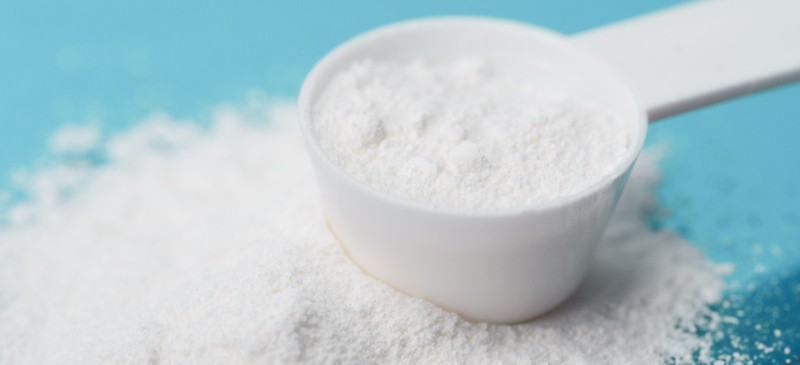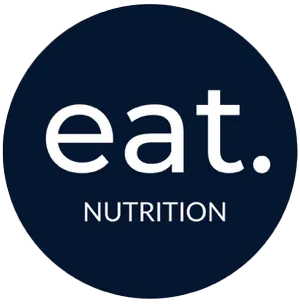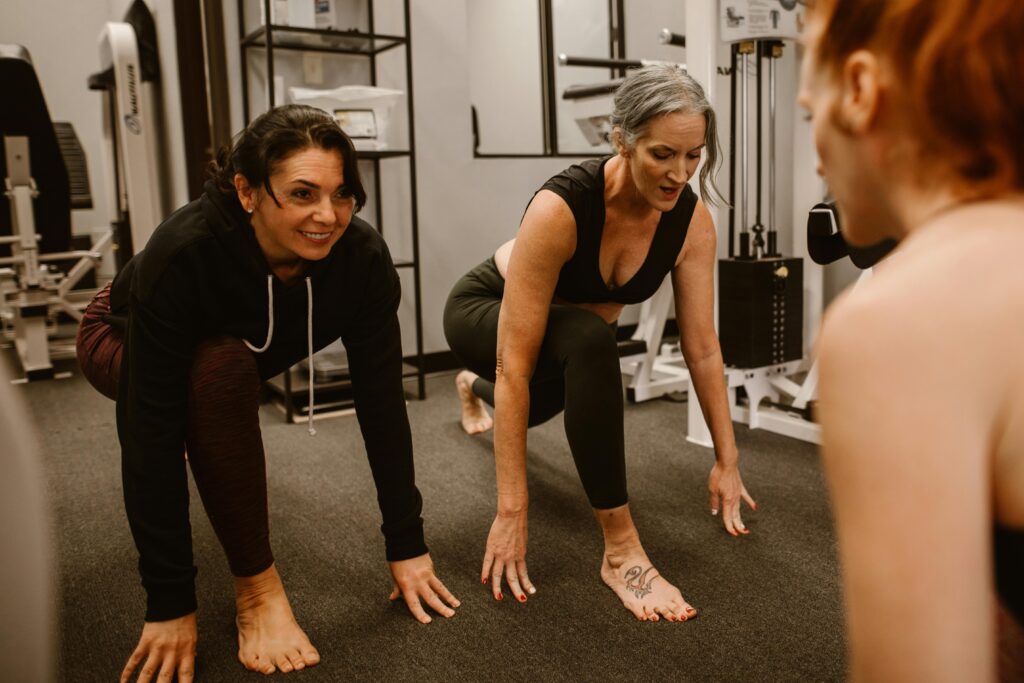
I’m generally a food-first dietitian (I aim to get my clients meeting their nutritional needs through whole foods, rather than relying on nutritional supplements). But through my own personal journey with Perimenopause and the extensive research I’ve done, there is one supplement that I personally take regularly AND now tend to recommend to most of my lovely female clients. Creatine monohydrate.
Often thought of as a supplement for body builders and those that want to build massive muscles at the gym, it’s got a new audience. Women aged 40+.
What exactly is Creatine Monohydrate?
It’s a naturally occurring substance that is found in our muscle cells, plus in breast milk and some foods (mainly red meat, chicken and oily fish). Creatine monohydrate is one of the most studied nutritional supplements in the world so it has a lot of research and science behind it in terms of dosage, frequency, and side effects. Although we make creatine monohydrate ourselves, our production declines as we reach our 40’s and beyond. So topping our supplies up can be a good idea.
What can it do for you?
First and foremost it helps supply energy to your muscle cells for high-intensity exercise by aiding in the production of adenosine triphosphate (ATP). Plus as we age our muscle mass can naturally decline but supplementation of creatine is proven to increase muscle mass and strength.
And possibly even more exciting… emerging research suggests that creatine supplementation can enhance cognitive function such as memory, mental clarity and focus by improving the efficiency of energy in our brain cells. It may also support neurotransmitter function, helping to stabilise mood and increase our resilience to stress. The effects can be especially valuable for us women in Perimenopause by offering a natural way to combat “brain fog” and stay mentally sharp. Peace to that 🙏
It’s basically one really useful tool in our Perimenopausal tool kit, but it alone won’t magically make everything amazing. For more guidance on what you can do in Perimenopause from supporting your liver to detoxify effectively, to losing weight sustainably and understanding how food, exercise, stress and sleep all contribute to our hormone experience, check out my Nourished Perimenopause course here.
Are there any side effects or people who shouldn’t take it?
Creatine monohydrate is generally safe, but it can cause mild side effects like stomach upsets, nausea, diarrhoea, muscle cramps, and water retention (which looks like weight gain on scales…so don’t freak out if you’re an avid weigher and you notice your weight go up by a couple of kilograms).
It’s really important to stay well-hydrated while you’re taking creatine, and consult your doctor if you have pre-existing conditions like kidney disease, liver disease, diabetes, or bipolar disorder, as creatine may worsen these conditions or lead to drug interactions. Also check in with your doctor if you are pregnant or breastfeeding – the research during this time is limited.
How do you take it?
You can purchase it as a pure powder, or you can also find it in capsules or gummies so it depends how you prefer to take these things. I tend to add a plain creatine monohydrate powder to a morning smoothie or mix into my yoghurt at breakfast. The recommended dose of 3-5g of creatine monohydrate currently shows benefits, which is equivalent to about ½ to 1 teaspoon of the pure powder each day.
There has been some media coverage recently about creatine gummies not necessarily containing the amount of creatine monohydrate that is stated on the product label. One gummy brand had 0.1g of creatine monohydrate per gummy detected in laboratory tests…rather then the 5g promised. That is 2% of the amount you’d think you were getting! For this reason, I personally take a creatine monohydrate powder – it’s not trendy, fruity flavoured or in a cute shape but at least I know what I’m getting!
Find out if it’s right for you
I recommend it regularly to my clients when I write up their tailored Nutrition Plans, to accompany the other food and lifestyle actions I suggest. If you’d like to learn more about whether creatine monohydrate is right for you, or you’d like your own bespoke Nutrition Plan to help you reach your wellbeing goals check out my offerings here, or email me at sarah@eat-nutrition.co.nz. I’d love to help you feel your best ❤️

